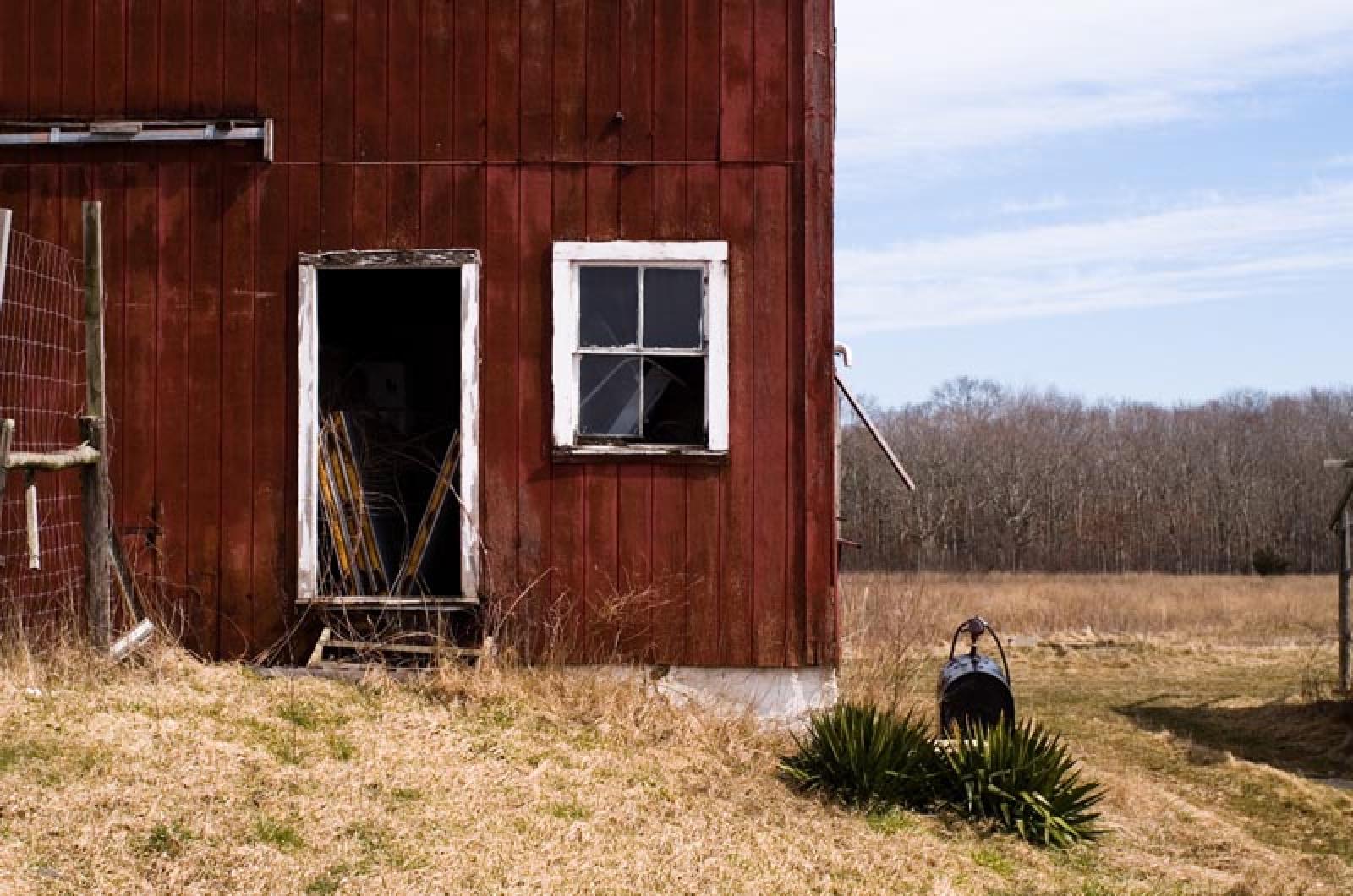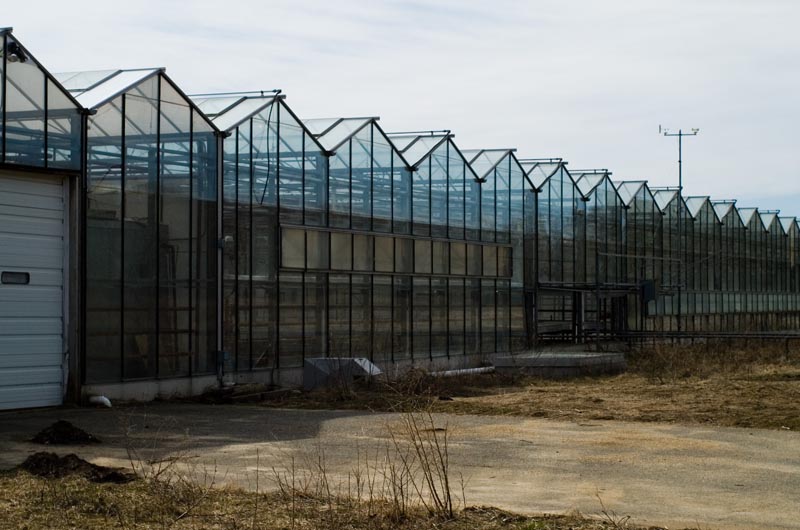Island Grown Initiative announced preliminary plans this week for a campus-style farm center at the former Thimble Farm Property, including a refurbished greenhouse, parcels of land for tenant farmers and a slaughterhouse facility.
At the farm network’s annual farmers’ dinner on Monday night, executive director Sarah McKay laid out the organization’s initial plans for the historic agricultural property. The new initiative will be called Island Grown Farms.
Plans for the 40-acre farm in the center of the Island, located off Edgartown-Vineyard Haven Road, include converting the one-acre greenhouse into a hydroponic growing and learning center with an aquaculture component, new affordable housing for year-round and seasonal employees, a commercial kitchen and a U.S. Department of Agriculture permitted slaughterhouse and cut and wrap facility.
The organization has hired Keith Wilda to mange the property. Mr. Wilda, a greenhouse consultant with an extensive farming background, will begin May 1. Conservationist and farmer Anna Edey is also acting as consultant on the greenhouse project.
IGI had been considering building the slaughterhouse at the Martha’s Vineyard Agricultural Society’s land in West Tisbury. but on Monday announced plans to move ahead with permitting for the facility at the Thimble Farm site. The 3,500 square foot facility is estimated to cost $800,000. Permitting is expected to begin in the fall, Ms. McKay said.
The organization plans to divide some of the farm land into two parcels — one 10-acre parcel and one 15-acre parcel — for tenant farmers. There will be an application process for prospective farmers, however the parcels are not expected to be ready until 2015. In the meantime, the land will be leveled out, cleared and cover cropped this spring, Ms. McKay said. IGI purchased the Thimble Farm property last year with help from donations by Allen and Shelly Holt of Washington, D.C. and Chilmark. The property was set to be placed on the private market before IGI took over. The land has a long history of agricultural use and was most recently home to community supported agriculture operation Whippoorwill Farm, which has since moved its operations to a property off Old County Road in West Tisbury.
On Monday night, discussion focused on the refurbishing of the greenhouse to make it a year-round facility in which farmers could grow food and starter plants. Refinishing the greenhouse is expected to cost around $500,000, most of which has already been raised, Ms. McKay said.
Mr. Wilda specializes in greenhouse work, and has managed three large-scale
greenhouses like the one intended for Island Grown Farms. The 33,000 square foot glass greenhouse, built in the late 1980s, “has been very well maintained” and is in “incredible shape,” Mr. Wilda said.
“Our goal at the greenhouse, and at Thimble Farm, is to be an apprentice training facility year-round,” he said. “The fastest growing sector of agriculture in the world is controlled environment agriculture.”
The greenhouse will be converted to use hydroponics and soil-based production to grow vegetables, including some experimental crops grown in cooler temperatures. Hydroponics is a system of growing plants in solutions of mineral rich water instead of soil.
The greenhouse will be a zero-discharge facility, Mr. Wilda said, with no water leaving the facility and instead being re-used within the hydroponic system. A livestock building on the north side of the greenhouse will be built to help produce organic waste to be used as fertilizer, compost tea and carbon dioxide. The carbon dioxide will help heat the greenhouse through the winter months, Mr. Wilda said.
A more detailed plan is still in development, Island Grown Farms project leader Steve Bernier said, but would likely include some sort of cooperative system between IGI and Vineyard farmers.
“It is our commitment at IGI, that we are not going to grow any food in competition with the Island farmer,” Mr. Bernier said. “This is a community initiative. This is education and training-based and done to support and extend the season of the Island farmer.”
According to the IGI bylaws, the organization is prohibited from selling produce, Mr. Bernier said. Instead, IGI is looking to be a grower for farmers.
Ms. McKay echoed Mr. Bernier.
“We do not want to compete with you farmers, we want to support you,” Ms. McKay said. “We need your help to figure out how.”











Comments (3)
Comments
Comment policy »